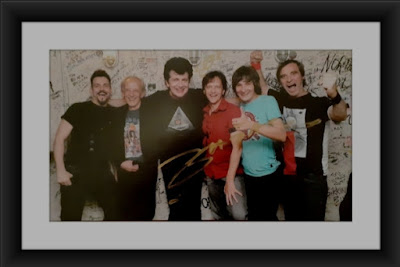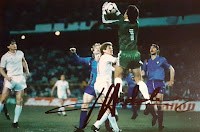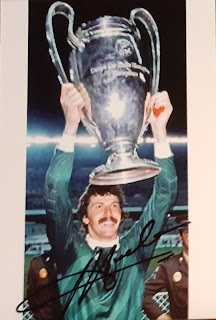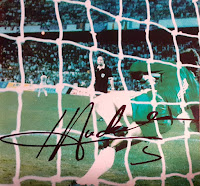Bajaga i Instruktori (
Serbian Cyrillic: Бајага и Инструктори; trans.
Bajaga and the Instructors) are a
Serbian and
former Yugoslav rock band. Founded in
Belgrade in 1984 by
composer,
lyricist and
guitarist Momčilo Bajagić "Bajaga", the group possesses a rich discography and a plethora of hit songs that placed them at the top of the
former Yugoslav rock scene, alongside other mega-selling bands such as
Bijelo Dugme and
Riblja Čorba.

The band's history begins in 1983. At the time
Momčilo Bajagić "Bajaga" was the guitarist for the
hard rock band
Riblja Čorba.
During his work with Riblja Čorba, Bajagić wrote music and both music
and lyrics for several Riblja Čorba hits, but also wrote a large number
of humorous
pop-oriented
songs that did not fit into Riblja Čorba's sound. He decided to release
these songs on a solo album, and he started working on the album with a
group of
Belgrade musicians: vocalist
Dejan Cukić (a former Dizel, Tilt, and
Bulevar member, and at the time a journalist working in the magazine
Rock), bass guitarist
Miroslav Cvetković "Cvele" (a former Tilt,
Pop Mašina, and Papatra member), guitarist Nenad Stamatović (a former Tilt,
Zebra,
Suncokret, and Bulevar member), and drummer
Vladimir Golubović (a former Tilt and Suncokret member, at the time temporarily replacing
Vicko Milatović in Riblja Čorba).
During the work on the album, Bajagić wanted only to record a
large number of songs he wrote on an album and to remain a member of
Riblja Čorba. The songs for the album were recorded in a rented
apartment and in
Radio Television Belgrade Studio V and produced by
Kornelije Kovač.
[1] The album, beside mentioned musicians, featured Nenad Stefanović "Japanac" on bass guitar, a former
Generacija 5 member Dragan "Krle" Jovanović on guitar, Kire Mitrev on
trombone, Ivan Švager on
clarinet, and
Suzana Petričević on vocals in the song "Papaline" ("
Sprats").
[1] The album, entitled
Pozitivna geografija (
Positive Geography)
was released at the end of January 1984 and was well received by the
audience, bringing hits "Berlin", "Mali slonovi" ("Little Elephants"),
"Poljubi me" ("Kiss Me"), "Limene trube" ("Brass Trumpets"), "Tekila
gerila" ("Tequila Guerrilla"), "Marlena", and "Tamara". The album also
featured the
anti-drug
song "Znam čoveka" ("I Know a Man"), dedicated to Dragan Đerić "Đera",
Bajagić's former bandmate from the bands Ofi and Glogov Kolac.
Initially, Bajagić had no intention of promoting
Pozitivna geografija
in concert, but eventually decided to listen to the advice of some and
hold several concerts. Bajagić and musicians working on the album held
their first concert in
Zagreb club
Kulušić on April 12, 1984.
[2] Beside the musicians that worked on the album, the concert also featured vocalist
Žika Milenković (Bajagić's former bandmate from the band Ofi, and a former Mačori member and an actor in the
amateur theatre
Teatar levo), keyboardist Dragan Mitrić (a former Bulevar member) and
Kornelije Kovač, Milenković soon becoming an official member of the
band.
[3] During their staying in Zagreb Bajagić and Cukić appeared as guests on the recording of
Parni Valjak album
Uhvati ritam, singing backing vocals on the title track,
[4]
which was the sign of gratitude to Parni Valjak for lending them a
piece of drum kit for their first concert. The band held the official
album promotion, organized by the
Rock magazine, in Belgrade
Dom Sindikata
on April 21, and on this concert the band appeared under the name
Bajaga i Instruktori, chosen after the idea of the journalist
Peca Popović, for the first time. The concert featured
Valentino and
Bezobrazno Zeleno as the opening bands. The concert was well visited (mostly by teenagers) and the band's performance was well received.
The success of Bajagić's solo album caused conflicts inside
Riblja Čorba, and on July 19, 1984, he was excluded from the band.
During that summer Bajaga i Instruktori went on a tour, with
Rade Radivojević on keyboards, playing mostly at
youth work actions. At the end of the year, in the
Rock magazine, Bajagić was proclaimed the Rock Musician of the Year, and
Pozitivna geografija was voted the Album of the Year by musicians. At the beginning of 1985, the band recorded the album
Sa druge strane jastuka (
On the Other Side of the Pillow), produced by Kornelije Kovač and
Saša Habić. The album featured a large number of guests: Branko Mačić on
jazz guitar,
Stjepko Gut on
trumpet and
flugelhorn, Sava Medan on
double bass,
Jovan Maljoković
on saxophone, Mića Marković on saxophone, Nenad Stefanović "Japanac" on
bass guitar, Dragan "Krle" Jovanović on guitar, and others.
[5] The album brought hits "220 u voltima" ("220 Volt"), "Vidi šta mi je uradio od pesme, mama" (a
Serbian language cover of the
Melanie Safka
song "Look What They've Done to My Song Ma"), "Ti se ljubiš (Na tako
dobar način)" ("You Kiss (In a great Manner)"), "Dvadeseti vek"
("Twentieth Century"), and ballads "Dobro jutro, džezeri" ("Good
Morning, Jazzers"), "Sa druge strane jastuka" and "Zažmuri" ("Close Your
Eyes"). For the first time Milenković was an author of a song,
co-writing the song "Francuska ljubavna revolucija" ("French Love
Revolution") with Bajagić. At this time the band's manager became a
former
U Škripcu manager Saša Dragić.
 Mircea Baniciu (n. 31 iulie 1949, Timișoara) este un cântăreț și chitarist român. S-a remarcat în muzica românească la începutul anilor '70 când a devenit solist vocal al formației rock Phoenix. După fuga colegilor săi din țară în 1977, începe o carieră solo, timp în care scoate pe piață un EP și 4 albume. În 1992 a fondat trupa Pasărea Colibri, alături de Florian Pittiș, Mircea Vintilă și Vlady Cnejevici, cu care a cântat zece ani, răstimp în care au apărut pe piață 5 albume și un DVD. În 2002 revine în trupa Phoenix cu ocazia concertului aniversar Phoenix 40 de ani. În toamna anului 2007 părăsește din nou Phoenix pentru a-și continua cariera solo și pentru a înființa în 2014 supergrupul Pasărea Rock.
Mircea Baniciu (n. 31 iulie 1949, Timișoara) este un cântăreț și chitarist român. S-a remarcat în muzica românească la începutul anilor '70 când a devenit solist vocal al formației rock Phoenix. După fuga colegilor săi din țară în 1977, începe o carieră solo, timp în care scoate pe piață un EP și 4 albume. În 1992 a fondat trupa Pasărea Colibri, alături de Florian Pittiș, Mircea Vintilă și Vlady Cnejevici, cu care a cântat zece ani, răstimp în care au apărut pe piață 5 albume și un DVD. În 2002 revine în trupa Phoenix cu ocazia concertului aniversar Phoenix 40 de ani. În toamna anului 2007 părăsește din nou Phoenix pentru a-și continua cariera solo și pentru a înființa în 2014 supergrupul Pasărea Rock.

















